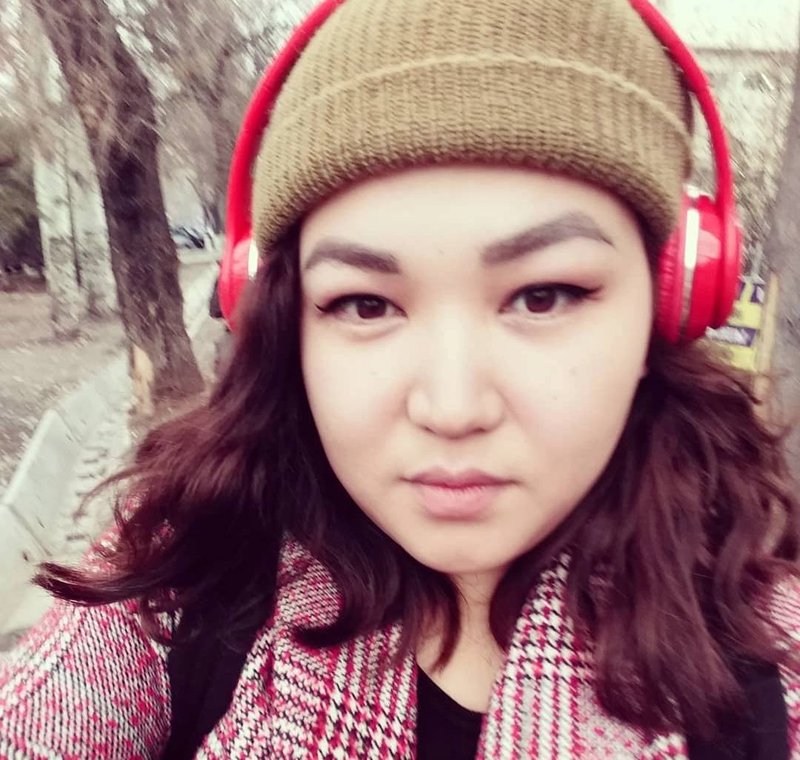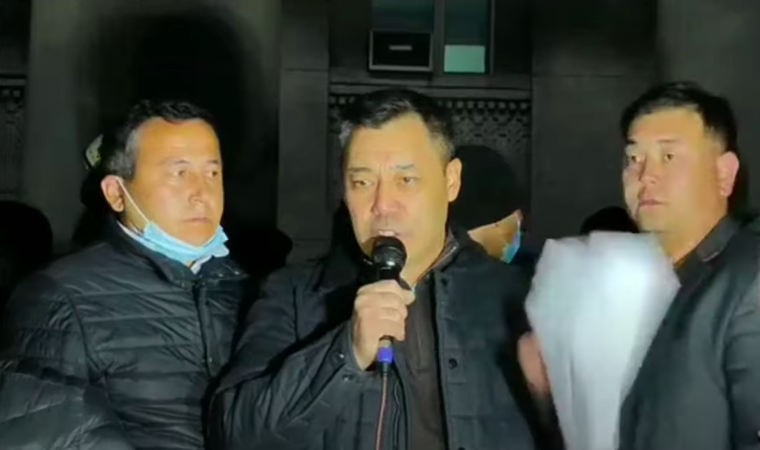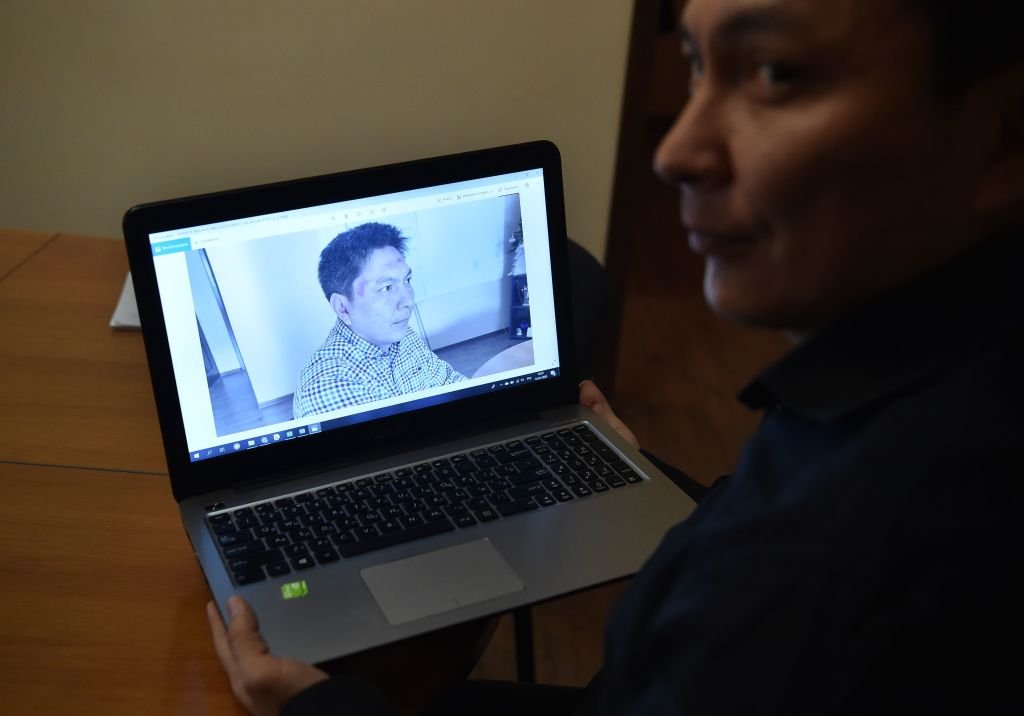Independent media Kloop believes it’s being punished for investigating Barcelona FC’s new academy in Kyrgyzstan
When FC Barcelona opened a new football academy in Kyrgyzstan in late August, the public reaction in the Central Asian state was warm and welcoming.
An exhibition match was held to promote the opening of the academy – the first of its kind in Central Asia – in which Barcelona ‘legends’ played against a team of Asian ‘legends’, including Kyrgyzstan’s president Sadyr Japarov, a former member of the national football team.
Barely a fortnight on from the sold-out game, a simple good news story had become darker – and the fate of Kyrgyzstan’s leading independent media outlet was hanging by a thread.
On 22 August, Kloop published an investigation that revealed that the main investors in the Barcelona academy were relatives of President Japarov and his head of national security, Kamchybek Tashiyev. Four days later, Japarov confirmed this in an interview.
On 28 August, Kyrgyz prosecutors filed a lawsuit demanding the liquidation of the Kloop Media Foundation, which runs the publication. The pretext was the fact that Kloop is registered as a non-profit rather than a media organisation, despite online outlets not needing a media licence under Kyrgyz law.
The lawsuit focuses mostly on accusations that Kloop is involved in “hidden manipulation of public opinion”, with prosecutors claiming that its articles cause “mental disorders”, “sexual anomalies” and “drug addiction” among readers.
Kyrgyzstan’s culture ministry has also ordered that Kloop’s website be blocked for publishing “fake news”, citing a news story, published on 1 September, that alleged an opposition politician had been tortured while in police custody.
The cascade of bad news came as a shock but not a surprise to Kloop, which has gone from a blog site for teenagers and students to a leading source of news, investigations and data journalism in the past 15 years. Kloop has broken vital stories about corruption, state policy and society in Kyrgyzstan.
openDemocracy spoke with Kloop editor Aidai Irgebaeva about why the independent press in Kyrgyzstan is under systemic attack.
Open Democracy: The news that Kloop is under threat of liquidation came immediately after your investigation into the financial backers of the Barcelona football academy. Is the lawsuit a form of retaliation for this publication?
Aidai Irgebaeva: Surprisingly, for some reason Barcelona has been associated with corruption before. So we have something of a shady story here.
After we published our investigation, Kyrgyzstan’s president gave an interview, criticising our media outlet. He said that publications such as Kloop were being paid by corrupt officials and politicians who had plundered the state and bought real estate abroad. Former presidents Kurmanbek Bakiyev and Askar Akaev fit this definition, as does former customs chief Raimbek Matraimov, and other corrupt officials who were the focus of our investigations.
If a corruption investigation can be considered PR [on behalf of a politician], then the president is right. But in reality, this is a typical manipulation of information.

oD: Most of the arguments in the prosecutors’ lawsuit concern the “strongly negative nature” of your coverage. What claims does the prosecutor make?
AI: Edil Baisalov, the deputy chairman of the Kyrgyz government, said that the lawsuit against Kloop has nothing to do with our articles. [Baisalov claimed it related only to the lack of registration.] This man was once closely associated with the media and defended the idea of freedom of speech. He knows very well that, by law, newspapers, television and radio must register as media. This does not apply to online publications.
In general, the authorities are complaining because Kloop also hires election observers who record violations [at the ballot box during elections]. This can be seen from the prosecutor’s statement, which contains statements from our [election] observers.
But I also have the feeling that articles were selected at random [to suit the prosecutors’ purpose]. The prosecutor’s office indicated in the lawsuit a certain amount of Kloop articles about problems in Kyrgyzstan: inflation, its reliance on people leaving the country to work, elections themselves, corruption risks. They used the term “sharp criticism of power” to describe our coverage, that is, we see everything in a bad light, we criticise too much and are thus doing everything wrong. Sorry, but in Kyrgyzstan there is no law that states the authorities cannot be criticised.
oD: How did your editors react?
AI: This was quite expected. We just didn’t know it would be this bad. When the bank accounts of Radio Azattyk [the Kyrgyz service of US-funded RFE/RL] were blocked last year on money-laundering charges, an inside source informed us that the same was planned for Kloop.
But at that time we were unable to confirm this information. We only later learned that law enforcement agencies were really trying to collect something. From the lawsuit, we learned that back in 2021, a criminal investigation was opened against Kloop for “public calls to seize power”. How do they think a media outlet can seize power? It’s doubly funny to hear this from the authorities. In 2020, Japarov himself boasted to a Russian publication that he had seized power while in prison by sending messages through social networks [to bring people onto the streets].
There is a feeling that the prosecutor, who is asking for liquidation, added a criminal case [to justify the application]. It is unclear what stage this investigation is at. Is it still ongoing? Why can’t they find evidence of crimes?

oD: Do you think the authorities have been preparing to attack Kloop?
AI: It was as if they needed a push from above and then they could set things in motion.
Take the example of independent investigative journalist Bolot Temirov [who revealed that Tashiyev’s family members owned a company that acted as middlemen for fuel sales from a state company]. Temirov’s office was searched and a criminal case was opened immediately after his investigation was published. It seems that journalists can engage in investigations only if they do not concern the president’s family or that of the head of the State Committee for National Security. Once you cross this line, the authorities will try to strangle you.
There is the 2021 criminal case against Kloop, and we don’t know anything about it. Our lawyer has still not been allowed to review it. There is also a criminal case against Azattyk and a legal case against Kaktus media – which authorities are trying to destroy – and a case against Political Clinic [another independent media].
This is a system of suppression of independent media – to stop anyone who publishes inconvenient articles about members of Kyrgyzstan’s first family or those connected with business.
oD: What has been the reaction from social media users?
AI: I regularly study social networks and see calls from fake accounts to close us down. Dozens and even hundreds of accounts copy and publish the same posts in order to spread [public] hatred towards Kloop. They also use homophobia for this, as if we are somehow interfering with traditional values. I also see posts from real people who constantly criticise Kloop because they don’t like feminism or anything about women’s leadership. They call us ‘NGO people’ and ‘servants of the West’.
But at the same time, many write: “I am against the closure of Kloop, because this information also has a right to exist.” And that’s an interesting position.

oD: Have Kloop journalists received threats prior to the lawsuit?
AI: The experience of investigative journalist Bolot Temirov scared us. Listening devices and recording equipment were found in his apartment. One of his employees found out that her boyfriend worked for the Kyrgyz security services and he had been blackmailing her with threats to publish an intimate video to spy on Temirov.
After this incident, we began to monitor whether we were being followed and became wary of those who, for example, tried to strike up conversations in bars. There are regular hacking attempts on our devices, at about the same time, from the same phone and in the park next to the office of Kyrgyzstan’s State Committee for National Security. We were told behind the scenes that there was some interest in us and some of us were being watched.
Journalists from Osh, Kyrgyzstan’s second largest city, often receive physical threats. Many officials there are former or current mixed martial arts fighters. That’s not a joke. They have repeatedly attacked our journalists, especially during the elections. Intensified attacks, threats and even persecution by law enforcement agencies have a systematic connection with Japarov’s statements or his hints that a particular media outlet did not please him.
oD: Over the past year alone, your peers at Radio Azattyk have had to endure website blocking and litigation before agreeing to a settlement agreement. Why did the Kyrgyz authorities decide to resort to a different method in your case? And what are you going to do if Kloop is liquidated?
AI: Blocking doesn’t work. First, there is VPN. Second, when the Azattyk website was blocked, it did not open through some providers, but through others, it did. But the trial dealt a moral and material blow to Azattyk.
Perhaps that is why in our case we decided to immediately move on to the issue of liquidation. But if everything is done according to the law, the trial will last about a year. Our lawyer is trying to review the materials of the criminal case and generally deal with the claim of the prosecutor’s office.
Even if Kloop is liquidated, no one will stop us from continuing to work in the online space. The authorities will not be able to interfere with the work of the media in any way, if it is not a newspaper or a TV channel. We are like nomads: just try to catch someone who keeps running away. We will still exist.
Source: Open Democracy


